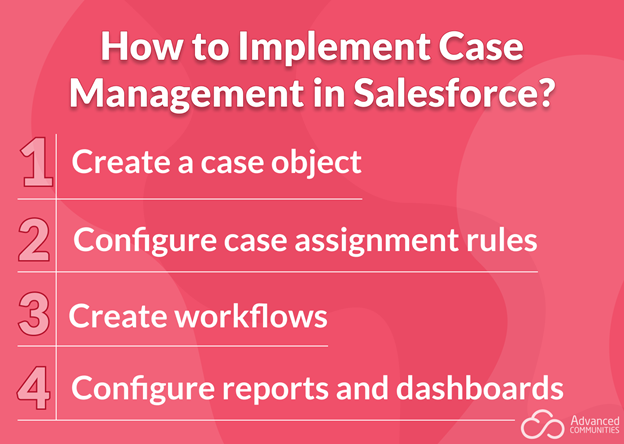
Salesforce is one of the most popular Customer Relationship Management (CRM) systems in the market. It is widely used by businesses to manage their sales and marketing activity. However, Salesforce is not limited to just sales and marketing management; it is also an excellent tool for managing customer support cases.
In this article, we will discuss the basics of Salesforce Case Management, how it works, and its key features.
Can Salesforce Be Used for Case Management?
Yes, it is one of the primary features of Salesforce’s Service Cloud, which is designed specifically for customer service and support.
The Service Cloud is built on Salesforce’s platform, allowing organizations to create a unified customer service experience across all channels, including phone, email, chat, and social media.
What is the Purpose of Case Management in Salesforce?
The purpose of case management in Salesforce is to provide a centralized system for managing customer inquiries and complaints. It enables organizations to track cases, assign them to the appropriate team members, and monitor their status until they are resolved. Case management in Salesforce lets organizations deliver a consistent, personalized service to their customers, thereby improving customer satisfaction and loyalty.
Key Benefits of Salesforce Case Management
Salesforce Case Management provides several key benefits to organizations, including:
Improved Customer Satisfaction
Salesforce Case Management allows organizations to resolve customer inquiries or complaints quickly and efficiently, leading to improved customer satisfaction.
Enhanced Productivity
Organizations can automate repetitive tasks, giving team members extra time to focus on more complex cases, and improving overall productivity.
Better Collaboration
Teams are able to collaborate effectively by sharing information and working together to resolve cases.
Improved Reporting and Analytics
Organizations get detailed reporting and analytics, enabling them to measure their performance and identify areas for improvement.
How is Case Management Implemented in Salesforce?
Case Management in Salesforce is implemented through the Service Cloud. It provides a set of tools and features designed specifically for customer service and support. To implement Case Management in Salesforce, organizations need to:
-
Create a Case Object: the Case object is the foundation of Salesforce Case Management. It stores all the information related to customer inquiries or complaints, including the case description, priority, status, and resolution.
-
Configure Case Assignment Rules: Case Assignment Rules allow organizations to automatically assign cases to the appropriate team members based on specific criteria, such as case type or product.
-
Create Workflows: Workflows enable organizations to automate repetitive tasks, such as sending email notifications or updating case statuses.
-
Configure Reports and Dashboards: Reports and Dashboards let organizations track their performance and identify areas for improvement.

The Top Features of Salesforce Case Management
Salesforce Case Management provides several features to help organizations deliver exceptional customer service, including:
-
Case Queues
Case Queues let organizations group cases based on specific criteria, such as product or geography, and assign them to team members for resolution.
-
Email-to-Case
Email-to-Case means organizations can automatically convert customer emails into cases, enabling them to track and resolve customer inquiries or complaints more efficiently.
3. Knowledge Base
The module provides a knowledge base that agents can use to quickly find answers to common customer issues.
4. Case Escalation
Case Escalation helps organizations set up rules that automatically escalate cases to the appropriate team members or managers based on specific criteria, such as case age or priority.
5. Service Level Agreements (SLAs)
SLAs allow organizations to define specific response and resolution times for cases, enabling them to deliver consistent and timely service to their customers.
The Final Take
Salesforce Case Management is a powerful feature that enables organizations to deliver exceptional customer service and support. It provides several key benefits, including improved customer satisfaction, enhanced productivity, better collaboration, as well as improved reporting and analytics.
If you want to improve your customer support using the Salesforce Experience Cloud, you can easily try the services of AC Knowledge Management Enterprise. Their app significantly expands standard Experience Cloud functionality for Case Management, opening up opportunities to use all of the features listed above and even more. You may also use their contact page to get more information or to schedule a demo!

















